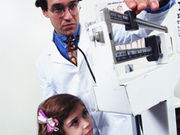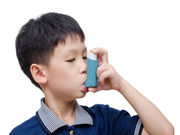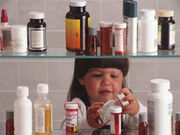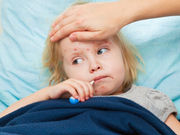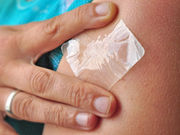USPSTF Reaffirms Obesity Screening Recs for Children 6+
U.S. Preventive Services Task Force fine-tunes 2010 recommendation
Few Changes in Employer-Sponsored Insurance 2013-2014
Only 3.5 percent of employers dropped coverage and 1.1 percent added coverage from 2013 to 2014
Guidelines Presented for Fluoroquinolone Use in Children
Fluoroquinolones should be considered in specific situations when there is no safe, effective alternative
Clean Indoor Environment Can Help Keep Asthma in Check
Controlling allergens, household pollutants can reduce need for medication
Opioid Poisonings in Children, Teens Rising Dramatically
From 1997 through 2012, 1.3 percent of children hospitalized for opioid overdose died
IDSA: Measles Complication SSPE More Common Than Thought
Clinicians to be aware of subacute sclerosing panencephalitis
Useful Tips Offered for Addressing Negative Patient Reviews
Doctors should respond quickly, validate patient complaints, demonstrate willingness to take action
Eating Reassessment Urged After Negative Oral Food Challenge
About 25 percent of children continue food-avoidance diet despite negative oral food challenge
Skin Patch to Treat Peanut Allergy Appears Promising
Delivering small amounts of peanut protein boosted tolerance for about half of young patients in study
Socioeconomic Status in Children Tied to MetS in Adulthood
Each unit increase in family SES in childhood linked to decrease in risk for adult metabolic syndrome







